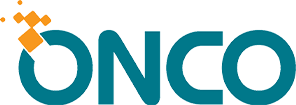Raising the Bar: A Deep Dive into the Oncology Navigation Standards of Professional Practice
The Professional Oncology Navigation Task Force published the Oncology Navigation Standards of Professional Practice in 2022. These standards lay a vital foundation for oncology navigators across the continuum of cancer care. This comprehensive document defines what it means to be a professional navigator in today’s evolving oncology landscape advocating not just for high standards of patient care but also for the integrity and sustainability of the navigation profession itself.
Why Navigation Standards Matter
Cancer remains one of the leading causes of death globally, disproportionately affecting marginalized and underserved populations. Harold P. Freeman, MD developed the navigation profession in 1990 in response to these disparities following the 1989 American Cancer Society National Hearings on Cancer in the Poor which exposed systemic barriers faced by the impoverished population in accessing timely cancer care.
Oncology navigation has expanded dramatically, encompassing professionals with varied backgrounds from clinical nurses and social workers to nonclinical patient advocates. However, until recently, the lack of standardized guidance made consistency in practice and evaluation difficult. That’s where the Oncology Navigation Standards of Professional Practice come in.
Core Goals of the Standards
The standards were created with the following goals:
- Enhance the quality of oncology navigation provided.
- Advocate for patients, survivors, and caregivers.
- Promote navigator involvement in policy and quality improvement initiatives.
- Educate key players on the importance of navigation.
The 19 Standards: Key Highlights
Each standard defines a fundamental element of oncology navigation and outlines expectations for clinical nurse navigators, social work navigators, and patient navigators alike. For more information about these specific roles, see our previous blog post “Understanding the Distinct Roles of Oncology Navigators: Patient, Nurse, and Social Work Navigators.”
Read on for a high-level overview of the standards. We encourage you to reach the standards yourselves for clear understanding of how they support your navigator role and practice.
1. Ethics
Navigators are expected to act with compassion and respect, protect patient rights, maintain confidentiality, and avoid conflicts of interest aligning with foundational ethics in healthcare practice.
2. Qualifications
Professional navigators must meet varying educational and licensure thresholds based on their defined scope of practice. Detailed information that outlines scope, education, licensure, training and continuing education expectations across roles can be found in the standards.
3. Knowledge
Navigators must stay up to date on current research and healthcare trends and integrate these into their navigation practice. Areas of expected competency include, but are not limited to:
- Psychosocial support
- Care coordination
- Patient advocacy
- Survivorship and end-of-life care
4. Cultural and Linguistic Humility
Navigators are expected to support National Standards for Culturally and Linguistically Appropriate Services (CLAS) and deliver culturally responsive services. This includes understanding how systemic inequities influence health access and outcomes.
5 – 6. Collaboration and Communication
These two standards provide guidance on collaborating and communicating with both the patient and the rest of the care team. While keeping the patient at the center, the navigator communicates effectively to work together with the interdisciplinary team to provide care that best serves the patient. Navigators can document communications related to the patient in OncoNav and transmit that information to the EHR for collaboration with the rest of the patient’s healthcare team.
7 – 9. Professional Development, Supervision, Mentorship and Leadership
These standards promote professional growth and leadership while encouraging experienced navigators to mentor others who may be new to the role.
10. Self-Care
To mitigate burnout and compassion fatigue, the navigator should promote a healthy work environment and practice resilience-building self-care that supports their own health and wellness.
11 – 15. Screening Through Survivorship and End-of-Life Support
These standards cover the depth of the navigator’s role within their scope, including:
- Educating and promoting cancer prevention and screenings
- Conducting psychosocial assessments to identify barriers to care and providing resources and other appropriate interventions
- Coordinating plan of care and survivorship needs
- Supporting patients through end-of-life decisions
OncoNav supports this workflow from screening through survivorship or end of life. With comprehensive documentation for each screening type and cancer diagnosis, the navigator can track screening and biopsy procedures, as well as the treatments the patient received for their diagnosis, to navigate the patient throughout the continuum.
16 – 17. Advocacy & Operational Management
Navigators advocate not just for patients but for systems change pushing for policies and programs that improve care access and reduce disparities. They also advocate for the navigation profession within their institutions to patient outcomes.
18 – 19. Quality Improvement & Evidence-Based Care
Navigators participate in data collection and program evaluation to refine services and improve outcomes. OncoNav reporting supports tracking metrics such as patient volumes, productivity, and timeliness to care which provide the evidence needed to improve cancer programs and patient outcomes. Clinical navigators are also encouraged to contribute to the research literature, enhancing the field’s body of knowledge.
Conclusion: A Framework for the Future—And How OncoNav Helps Get You There
The Oncology Navigation Standards of Professional Practice provide the foundation for delivering patient-centered, culturally competent, and ethically sound cancer navigation. As cancer care grows increasingly complex, adherence to these standards ensures navigators can deliver equitable, informed, and high-impact care.
OncoNav is purpose-built to help teams operationalize these standards with confidence. From centralizing patient communication and documentation to monitoring quality improvement metrics, OncoNav gives oncology navigators the tools to exceed national expectations. By embedding best practices directly into daily workflows, OncoNav helps organizations raise the bar on navigation excellence while focusing on what matters most: improving outcomes for patients and families.
For more information on how OncoNav can support your navigation program, contact OncoNav Sales at:
📞 (888) 369-1791


